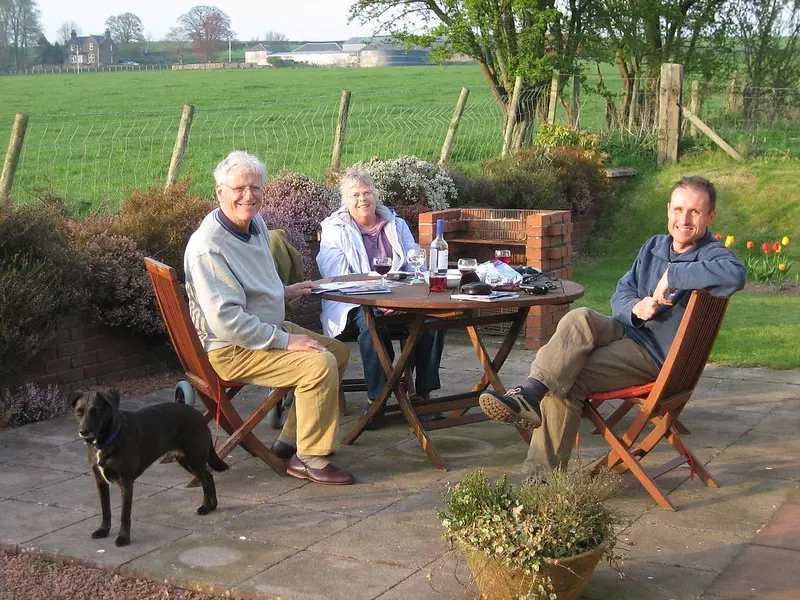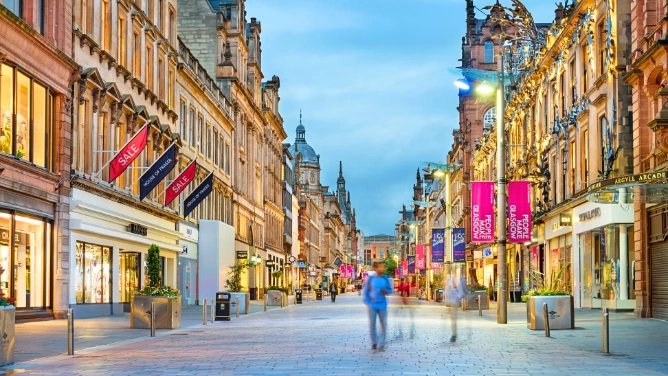Several months in Scotland are similar to Christmas, so you can celebrate with vintages. The country has four major religious holidays: Easter, Whitsunday, All Souls Day, and Midsummer Day. These festive occasions bring communities together, often featuring traditional music, dancing, and feasting. If you’re dreaming of immersing yourself in this vibrant culture, planning your perfect Scotland holiday will open doors to experiencing these celebrations firsthand. From the breathtaking landscapes to the warm hospitality, each aspect of your journey will make for unforgettable memories.
These days are significant in the Scottish culture and have historical value. For instance, All Souls Day was a significant event celebrated in London until 1662 when it was moved to Westminster Abbey due to protests from the Scottish nobility. This was due to the belief that anyone who died during this period would not go to heaven but rather to hell for eternity. This is not the case today, as it is only observed in a few weeks of the year.
All Souls Day is usually celebrated on November 1 and 2 respectively.
Scotish Main Holidays

New Year’s Day (1st January)
New Year’s Day, or Ne’erday, marks the commencement of the year and is part of the wider celebration of Hogmanay, which is the Scots word for the last day of the year. Celebrations start on New Year’s Eve with street parties, firework displays, and a tradition known as ‘first-footing.’ The ‘first foot’ is the first person who crosses the threshold of a home after midnight, ideally bringing gifts like whisky, coal, shortbread, or a black bun, which are all tokens believed to bring good luck.
Burns Night (25th January)
Burns Night celebrates the life and poetry of the poet Robert Burns, who made a significant contribution to Scottish culture. It is celebrated with Burns suppers, which traditionally include haggis (a traditional Scottish dish), Scotch whisky, and the recitation of Burns’ poetry. A formal Burns supper will include the piping in of the haggis followed by the recital of Burns’ “Address to a Haggis.”
Easter (Date Varies)
Easter is a Christian holiday that signifies the resurrection of Jesus Christ. It is celebrated with church services and is a time for families to gather.
In Scotland, as in many other parts of the world, traditions include egg decorating, Easter egg hunts, and the gifting of Easter eggs. Some communities may also have bonfires called “Easter fires.”
St. Andrew’s Day (30th November)
St. Andrew’s Day is a celebration of Scotland’s patron saint, Andrew. It is both a national holiday and a feast day.
Festivities often include traditional Scottish music, dancing at ceilidhs (social gatherings), and food. In some areas, there are parades and events that showcase Scottish heritage, such as storytelling and historical reenactments.
Christmas Day (25th December)
Christmas Day is a Christian holiday commemorating the birth of Jesus Christ, which has also become a widely celebrated cultural holiday.
Scottish Christmas traditions often include decorating homes with festive ornaments, sharing a festive meal with family, exchanging gifts, and attending church services. Uniquely, in ancient times, Christmas was banned in Scotland for nearly 400 years, and only in the mid-20th century did it become a public holiday. Despite this history, Scottish holiday customs and practices have evolved over the years, blending ancient traditions with modern influences. For instance, many families now enjoy Christmas parties that include ceilidh dancing, celebrating the joyous spirit of the season. Additionally, the New Year, or Hogmanay, remains one of the most significant celebrations in Scotland, often featuring fireworks, street parties, and the singing of “Auld Lang Syne.
Boxing Day (26th December)
The day after Christmas was traditionally when servants and tradespeople would receive gifts from their superiors, which is where the term “boxing” derives from.
In modern times, Boxing Day in Scotland has become a day for relaxation and spending time with friends and family, similar to many other parts of the UK. It is also a popular day for starting the January sales and sporting events.
Hogmanay (31st December)
Hogmanay is Scotland’s celebration of the New Year and is one of the most significant holidays in the Scottish calendar.
Unique customs include the singing of “Auld Lang Syne,” a Scots-language poem by Robert Burns, cleaning the house before the stroke of midnight (known as ‘redding’ the house), and presenting traditional gifts for good luck. Fire festivals and torchlight processions also take place in various parts of Scotland, symbolizing the purging of the old year and welcoming the new.
Final Thoughts
Each holiday, while celebrated within the bounds of tradition, offers a unique and vibrant experience that speaks to both the hearts of the locals and the fascination of visitors. Whether it is through the lively tunes of a ceilidh, the sumptuous flavor of haggis, or the convivial atmosphere of Hogmanay, Scottish holidays create memorable moments and foster a sense of community—proving that in Scotland, tradition always has a place in modern-day celebrations.

